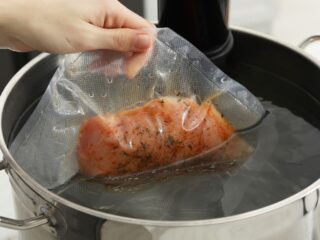
You probably don’t think about your drains too much—until they’re clogged. That’s when you realize how important they are. Clogged drains can be a real pain, causing backups, overflows, and even damage to your plumbing system.
It’s true! And the best way to keep your drains flowing smoothly is by understanding the unique challenges each season brings. That’s why seasonal drain maintenance is so important.
Why Regular Drain Maintenance Matters
A well-maintained drainage system is essential for a happy home. By committing to regular drain cleaning, you’re not just preventing clogs. You’re extending the life of your plumbing system and saving money on costly repairs. Plus, let’s face it, dealing with a stubborn clog is no fun.
DIY Drain Cleaning Tips
Before calling in the professionals, try these DIY drain cleaning methods:
- Plunging: A classic solution for minor clogs.
- Drain snake: Effective for removing hair and other debris.
- Hot water: Can help loosen grease and soap scum.
- Baking soda and vinegar: A natural and often effective cleaner.
For stubborn clogs or persistent problems, it’s best to call a drain cleaning service.
When to Call a Drain Cleaning Service
Professional drain cleaning is essential for:
- Stubborn clogs that resist DIY methods
- Sewer line backups
- Regular maintenance to prevent major issues
Drain cleaning services have the tools and expertise to handle even the toughest clogs.
Spring Cleaning for Your Drains
Spring is the perfect time to give your drain system a deep clean. After a long winter, there’s likely a buildup of gunk and debris in your pipes. Start by pouring boiling water down your kitchen sink drains, and bathroom sink drains to help loosen things up. For tougher clogs, a drain snake might be necessary.
If you have a septic system, spring is also the ideal time to schedule a pumping. This will help keep your septic system operating efficiently.
Summer Drain Care
Summer means more showers, dishes, and laundry. These put extra strain on your kitchen sink drains, bathroom sink drains, and overall drainage system.
To keep things flowing smoothly, avoid pouring grease or oil down your kitchen sink. Grease traps can help with this, but remember, even with a grease trap, it’s best to wipe out pans and pots before washing them.
Also, be mindful of what goes down your toilet. Only toilet paper should be flushed.
Fall Foliage and Your Drains
Fall is a beautiful season. The leaves change color, the air gets crisp, and everything feels cozy. But with this beauty comes a potential problem for your drains. Falling leaves and other debris can cause major issues for your home’s drainage system.
- Clogged gutters: Leaves and twigs build up in gutters, blocking the flow of water. This can lead to overflows, water damage to your roof and foundation, and even ice dams in winter.
- Blocked downspouts: If your downspouts are clogged, water can’t drain away from your home properly. This can cause pooling, erosion, and basement flooding.
To prevent these issues, clean your gutters and downspouts regularly throughout the fall. Consider installing gutter guards to help keep leaves out. Also, check outdoor drains often and clear any blockages.
Winterizing Your Drains
Winter brings cold temperatures, which can wreak havoc on your plumbing system. To prevent pipes from freezing, let your faucets drip a little water. Insulating exposed pipes can also help. If you’re going to be away for an extended period, turn off the water supply to your home.
Signs of a Clogged Drain
Paying attention to your drains can save you headaches (and, potentially, a flood). Here are some common signs that your drain might be clogged:
- Water drains slowly. This is often the first sign of a problem. If it takes forever for water to go down the drain, there’s likely a clog building up.
- Gurgling noises. Strange gurgling sounds coming from your drain aren’t normal. They usually mean air is trapped in the pipes, which can be a sign of a clog.
- Puddles or backups. If water starts to pool around your drains or backs up into other fixtures, you’ve got a bigger problem.
- Unpleasant odors. A foul smell coming from your drain is never a good sign. It often means something is decaying in your pipes.
Ignoring these signs can lead to bigger problems. If you notice any of these issues, it’s best to address the problem sooner rather than later.
Preventative Drain Maintenance Tips
The best way to deal with drain problems is to prevent them in the first place. Here’s how:
- Avoid pouring grease, oil, coffee grounds, and other solids down your kitchen sink drains.
- Use drain covers to catch hair and other debris.
- Regularly pour hot water down your drains to help prevent buildup.
- Consider using a green gobbler or other enzymatic drain cleaner for regular maintenance.
- Schedule professional drain cleaning services at least once a year.
With these tips, you can keep your drains clean, prevent clogs, and enjoy peace of mind. Remember, a little prevention goes a long way when it comes to your drainage system.
Final Thoughts
Don’t let drain troubles stress you out. Prevent clogs, save money, and avoid messy surprises. Follow these tips. Still worried? Call a drain cleaning pro. Happy drains, happy home!







